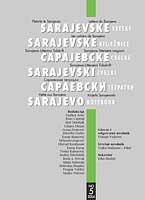We kindly inform you that, as long as the subject affiliation of our 300.000+ articles is in progress, you might get unsufficient or no results on your third level or second level search. In this case, please broaden your search criteria.
Since Romania’s accession to the European Union on 1 January 2007, internal conflicts have intensified, voters’ interest in politics has diminished, and bilateral relations with the country’s eastern neighbours have got more complicated. At the same time, traditional animosity with Hungary has mellowed, even while the claims of ethnic Hungarian elites have become more insistent. The acceptance of Romania into the EU seems to have been the last common aim of the country’s politicians, the very last goal about which the Romanian political class succeeded in forging a national consensus. On completion of this task, however, Romania’s political elites did not endeavour to try and find another common project that might be able to harness their administrative, legislative, civic and intellectual energies. They chose instead to revert to their own group interests, and in so doing risked incurring multiple fragmentation at the bureaucratic and political levels, but also at the level of public opinion. Neither the government, nor the political parties, nor Parliament had prepared a post-accession strategy aimed at synchronizing the country with its fellow EU states, or at implementing a transition to another stage of social, economic and political development.
More...
The introductory text of the magazine is a kind of personal view, so the section is titled In the First Person. This time it is written by the young Sarajevan poet Senadin Musabegović. The text, entitled Writing about War, is a story written in a confessional manner about an encounter with the Norwegian author Bjorn Larson, who complains about the lack of conflicts in everyday life which could provide the basis for a good story (the theme of his novel is war in Algeria). In reply, Musabegović refers to Bergman’s characters, who speak dramatically about inner war. Bergman did not need war to make a story. His characters are not placed into the context of real war, with shells exploding, but they nevertheless talk about war. When I write about war, says Musabegović, which really and most brutally happened to me, I am attempting to address it from the perspective of the inner war that happened inside me. Even when we address war in the language of sheer facts, describing it coldly and in an almost documentary manner, it is still only the account of our inner experience of the world, states Musabegović.
More...


The guest of this issue’s Diary section is Nedžad Ibrišimović, one of the most significant BiH authors of the middle generation. At the same time, he is also a painter and sculptor. Ibrišimović starts his Diary with diary notes of 1972, and then goes on with observations from the perspective of present time, finally continuing his diary with a story of the making of his sculpture Winged Horse, thus creating a documentary of exquisite power.
More...





Each issue of the magazine introduces one painter of the region. This time, it is a young artist from Belgrade, Maja Skovran, whose art is analysed by art historian and essay writer, Slobodan Lazarević. He says: ... We can say that each being is the light; where light is absent, darkness and futility reign. The whole being, the entirety of reality is in God; whatever extends beyond God, exists as nonbeing, “the darkness of Hades”. Creating her symbols and paintings, Maja Skovran has realised a bit of that promising divine reality, as the art shapes life by means of its unique language and mode, always in new and unique ways. It implies an everlasting search for the Logos - the primordial mythical impulse, out of which essence the world was made and certain order brought into it.
More...






